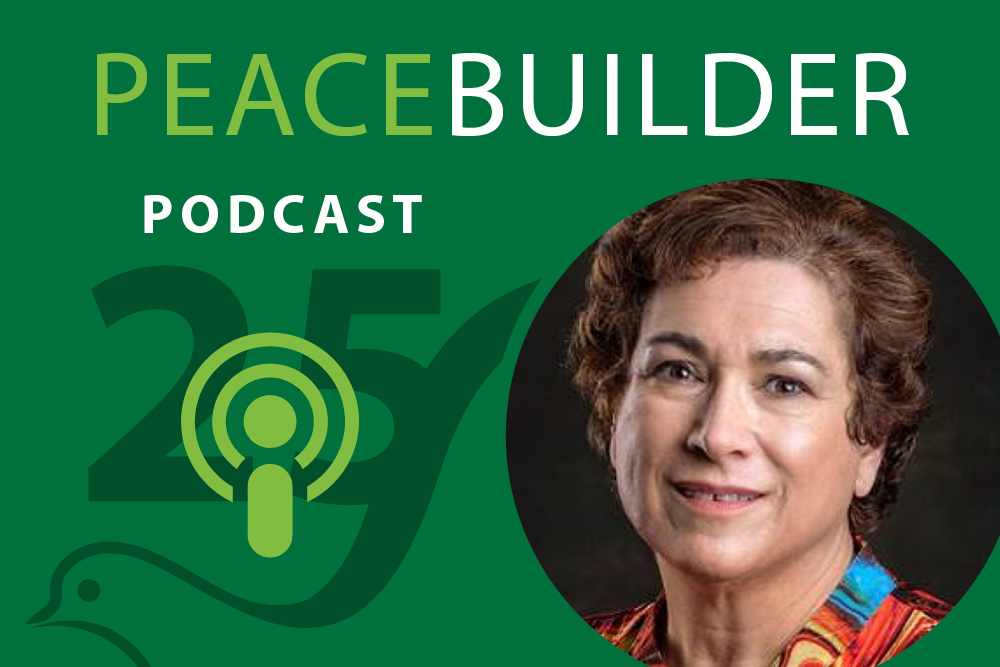The tenth and final installment of the Peacebuilder podcast’s first season features Jayne Docherty, executive director of the Center for Justice and Peacebuilding (CJP) at Eastern Mennonite University (EMU). Docherty speaks on her path to the field, the importance of considering worldviews in a conflict, and how the program has grown and changed since she joined as the first non-Mennonite faculty member, shortly before 9/11.
The podcast is just one of the ways the center is celebrating its 25-year anniversary. Hosted by CJP executive assistant and anniversary celebration committee chair Patience Kamau MA ‘17, the 10-episode series features faculty and staff members reflecting on the history of CJP and their own peacebuilding work. A new episode drops every other week on the Peacebuilder website.
The concept of worldview is a keystone in Docherty’s stories. It shaped how she interpreted the fiasco at Waco, Texas between the Branch Davidians and the FBI, which she wrote her dissertation on while a doctoral student at the Institute for Conflict Analysis and Resolution at George Mason University. It’s also the reason she chose to teach at EMU – “it’s the only place nobody asked me what I meant by worldview,” she says.
But she prefers “the word ‘world viewing’ better, because it’s an activity that we engage in all day long.”
Docherty went on to publish a book based on her dissertation: Learning Lessons from Waco: When the Parties Bring their Gods to the Negotiation Table. That research taught her a lot about mediation and negotiation in a situation where two groups have a “toxic combination” of shared and different assumptions of the world.
“When the worldview differences are really, really deep, you can’t convince the other party to do anything. All you can do is construct a space in which they can convince themselves,” she explains. “Every worldview is a way of seeing, but it’s also a way of not seeing. So what are you not seeing?” Acknowledging your own and others’ ways of world viewing makes team-based conflict analysis all the more important, Docherty says. That way you can cover for one anothers’ blind spots.
Docherty had to navigate some differences in worldviews when she came to the then-Conflict Transformation Program as an Italian Catholic whose father was a career Air Force officer.
“At CJP, coming in as a cultural outsider, I was literally the first non-Mennonite hired into the faculty for this program,” she says. Even so, she’s found an “authentic care for one another. I think that’s what we have. I think that’s what we strive for here.”
Her hopes for CJP in another 25 years? That the program is recognized, not just internationally, but also in its own figurative and literal backyard as “a really dynamic organizing location for peace, justice, and nonviolence, and doing work in a trauma-informed way.”
We already have a strong network of graduates doing good work in the field, Docherty says, but it’s somewhat of a “latent network. And our job right now is to try to plug that in.”
